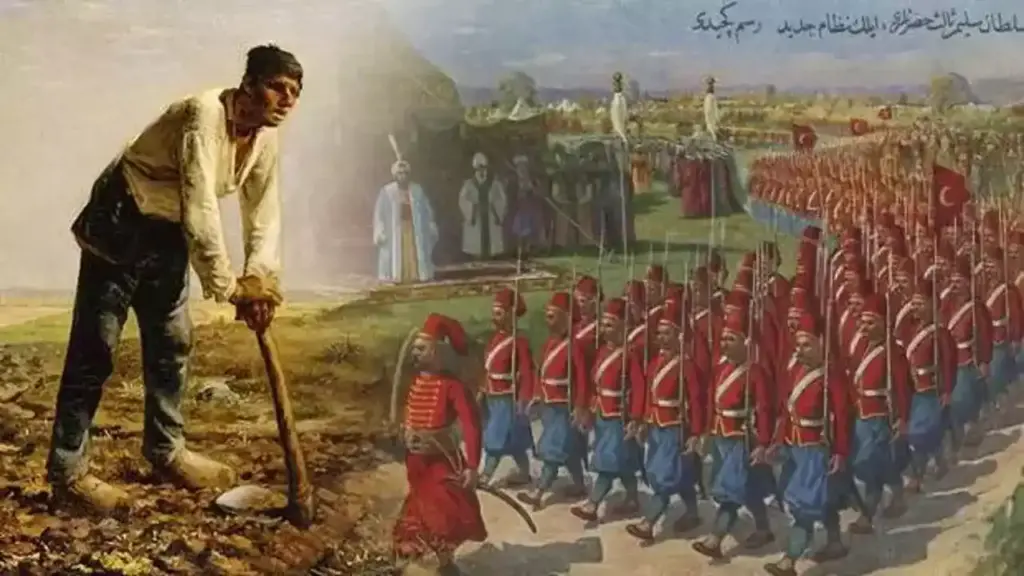The benefits of the Timar System are a land management and tax collection system that is one of the cornerstones of the economic, military and social structure of the Ottoman Empire. In this article, the benefits of the Timar System will be discussed from various perspectives. The Timar System made great contributions to strengthening the administrative structure of the Ottoman Empire, increasing agricultural production, maintaining military power and ensuring central authority. An in-depth examination of this system plays an important role in understanding the dynamics behind the continuity and success of the Ottoman Empire.
Historical Background of the Timar System
The Timar System is a method that has been implemented since the foundation of the Ottoman Empire and has been systematized especially since the end of the 14th century. In this system, conquered lands were divided into sections called timars and these timars were allocated to certain individuals, usually in return for military service. These individuals were called “timar owners” or “sipahis” and were responsible for the security of the region they were in and the collection of taxes.
Economic Contributions of the Timar System
One of the most obvious benefits of the Timar System is its contributions to the economic structure of the Ottoman Empire. This system was designed to increase the continuity and efficiency of agricultural production. Timar owners collected taxes from the peasants who worked the lands allocated to them and transferred a portion of these taxes to the state, while using the rest to provide for their own livelihood. This arrangement increased the economic well-being of both timar owners and peasants and ensured that agricultural production continued in a continuous and regular manner.
The Timar System ensured that the villagers remained attached to the land and continued production. The villagers were able to directly benefit from the products of the land they worked and thus paid more attention to agricultural activities. This situation contributed greatly to the development of Ottoman agriculture and the general strengthening of the economy. In this context, the benefits of the Timar System played an important role in maintaining the economic stability of the Ottoman Empire and increasing its sources of income.
Contributions to Military Power
The benefits of the Timar System are also clearly seen in the military field. Timar owners also served as sipahis and formed a significant part of the Ottoman army. This system ensured that the Ottoman army had a constant and ready military force. In times of war, timar owners and the soldiers they trained joined the Ottoman army and contributed to the effective use of military power.
The participation of the Sipahis with soldiers they collected from their own regions during the war allowed the army to mobilize quickly. This increased the Ottoman’s fighting ability and allowed them to achieve great success in conquests. The benefits of the Timar System allowed the Ottomans to have a constantly strong army in the military field and thus to expand and protect the empire’s lands.
Benefits of the Timar System: Strengthening of Central Authority
The benefits of the Timar System were of great importance in strengthening the central authority of the Ottoman Empire. Timar owners served directly under the central authority and acted as representatives of the state in the regions they were located. This helped the state to effectively rule over large territories and ensure the control of the central authority.
The strength of the central authority ensured that the internal functioning of the Ottoman Empire was regular and stable. Since the timar owners were responsible for ensuring regional security and collecting taxes, they assumed a great responsibility in carrying out the orders of the central authority. In this context, the benefits of the timar system should be evaluated in terms of the strengthening of the central administration of the Ottoman Empire and the preservation of its stability.
Contributions to Social and Cultural Integration
The benefits of the Timar System are evident not only in the economic and military fields, but also in social and cultural integration. The Ottoman Empire had a multi-national structure where different ethnic and religious groups lived together. The Timar System played an important role in providing balance and harmony within this diversity. Timar owners ensured that different communities lived together in the regions they were located and remained loyal to the authority of the state.
This system helped to regulate relations between social classes and to form a ruling class representing different segments of the state. At the same time, the timar owners worked to find solutions to the problems of the local people and to ensure their well-being. The benefits of the timar system were an important factor in preserving the diversity and unity of Ottoman society in this respect.
Contributions to the Tax System
Among the benefits of the Timar System, the efficiency in tax collection and management also has an important place. Timar owners were obliged to collect taxes on the lands allocated to them. This system ensured that tax collection processes were carried out regularly and effectively. The collection of taxes in a certain order helped the state maintain the continuity and stability of its financial resources.
The fact that the timar owners performed the tax collection duty made it easier for the central authority to control this process and prevented corruption. This situation ensured that the financial structure of the Ottoman Empire was strong and sustainable. The benefits of the timar system, with its efficiency in tax collection and financial management, increased the state’s income sources and maintained economic stability.

Long Term Effects
The benefits of the Timar System should be evaluated not only in terms of short-term successes but also in terms of its long-term effects. Individuals with timar origins assumed important duties in various periods of the Ottoman Empire and played a critical role in ensuring the continuity of the state. Thanks to this system, continuity and stability were ensured in the administration of the state, and a ruling class was formed that served with the same service mentality and loyalty for generations.
The benefits of the Timar System were also effective in overcoming the crises and difficulties experienced by the Ottoman Empire in different periods. The presence of educated and talented cadres helped the state to survive and recover even in difficult times. These long-term effects are considered to be one of the fundamental dynamics behind the Ottoman Empire’s centuries-long rule.
Criticisms and Counter-Arguments
While discussing the benefits of the Timar System, the criticisms and counter-arguments of this system should also be taken into consideration. The Timar System has been associated with corruption and corruption over time. Timar owners were criticized for mismanaging the lands allocated to them and for being unfair in tax collection. This situation negatively affected the economic situation of the villagers and caused a decrease in agricultural production.
However, the early implementations and benefits of the Timar System should be evaluated beyond these criticisms. The contributions of the system to the economic, military and social structure of the Ottoman Empire played an important role in the long-term success of the state. Although criticisms reveal the deterioration of the system over time, the benefits of the Timar System are clearly seen in the rise and stability periods of the Ottoman Empire.
The benefits of the Timar System played a significant role in the economic, military, social and administrative successes of the Ottoman Empire. This system increased agricultural production, sustained military power, strengthened central authority and ensured social balance. The successful service of individuals with timar backgrounds at various levels of the Ottoman state was a critical factor in the long-term success of the state. Despite its criticisms, the benefits of the Timar System hold an important place in the history of the Ottoman Empire and an in-depth examination of this system plays a key role in understanding the dynamics behind the empire’s success.
